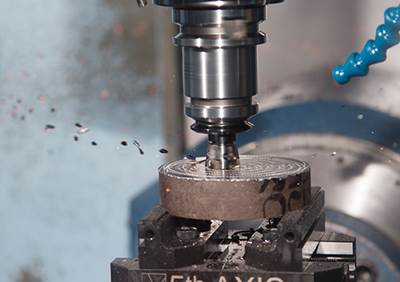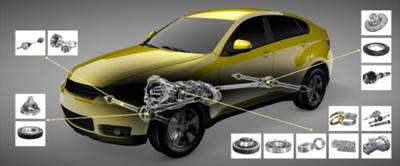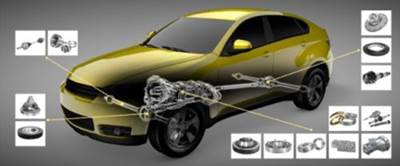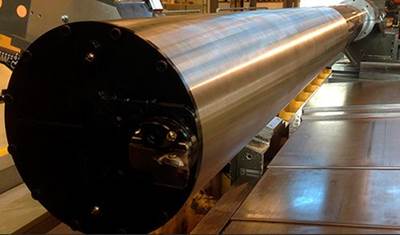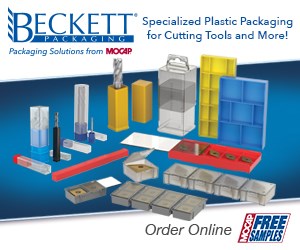Cutting Tools
Boring Head Provides Options to Ease Chip Removal
Big Kaiser Precision Tooling’sMW small-diameter, indexable boring head enables small-hole rough boring diameters ranging from 16 to 21 mm (0.630" to 0.827"), making it ideal for semi-finish boring operations of workpieces with die-cast holes.
Read MoreBroader Range of Applications Ahead for Ceramic Inserts?
Greenleaf's phase-toughened ceramic inserts could prove that this kind of technology has a future in more universal milling and turning applications.
Read MoreExpanded Thread Mill Line Includes 3×D Tools
Emuge has expanded its line of solid carbide thread mills in its Threads-All Program to include the ZGF-I line of 3×D tools designed for maximum reach.
Read MoreTurning Grades Bring Wear Resistance to Stainless Steel Machining
Sumitomo Electric Carbide offers its AC6030M and AC6040M turning grades for machining stainless steels.
Read MoreTool Coating Supports Routine Machining of Various Metals
Ti-Coating offers its Tinalox SN2 PVD coating for indexable carbide tooling.
Read MoreCVD-Coated Grade Delivers Chipping, Peeling Resistance
Tungaloy’sT515 CVD-coated grade features a substrate and coating structure that suits it to machining cast iron.
Read MoreDouble-Sided Shoulder Mills Achieve High Surface Quality
The VSM490 double-sided shoulder milling platform from Widia achieves true 90-degree shoulders and floors with high-quality surface finish for markets such as transportation and moldmaking.
Read MoreBreaking Chips and Controlling Burrs when Machining Automotive Transmission Components
Chip control is the bane of every shop’s existence and knowing how to consistently break chips and control burrs in ductile steels like SAE 1018, 1020, and 8620 is the holy grail of the tooling industry. When a shop experiences chip control issues, it affects their bottom line either through machine downtime, scrapped or reworked components, lost inventory due to broken tools or even employee injury.
Read MoreTips on Breaking Chips When Turning Transmission Parts
Components for automotive transmissions are typically made of ductile steels such as SAE 1018, 1020 and 8620. Turning these parts is often plagued by problems with long, stringy chips. This article from Sandvik Coromant addresses the complex variables and strategic trade-offs that must be considered in designing the most effective insert for this application. The insights into the problem and its solution will help anyone think more clearly about vexing chip control issues.
Read MoreA Really, Really Big Boring Bar
The developers are calling it the world’s largest anti-vibration boring bar—one that is capable of machining a bore 12 inches in diameter and as long as 165 inches. Sandvik Coromant designed and manufactured this boring bar in cooperation with lathe builder Gurutzpe Turning Solutions.
Read More

